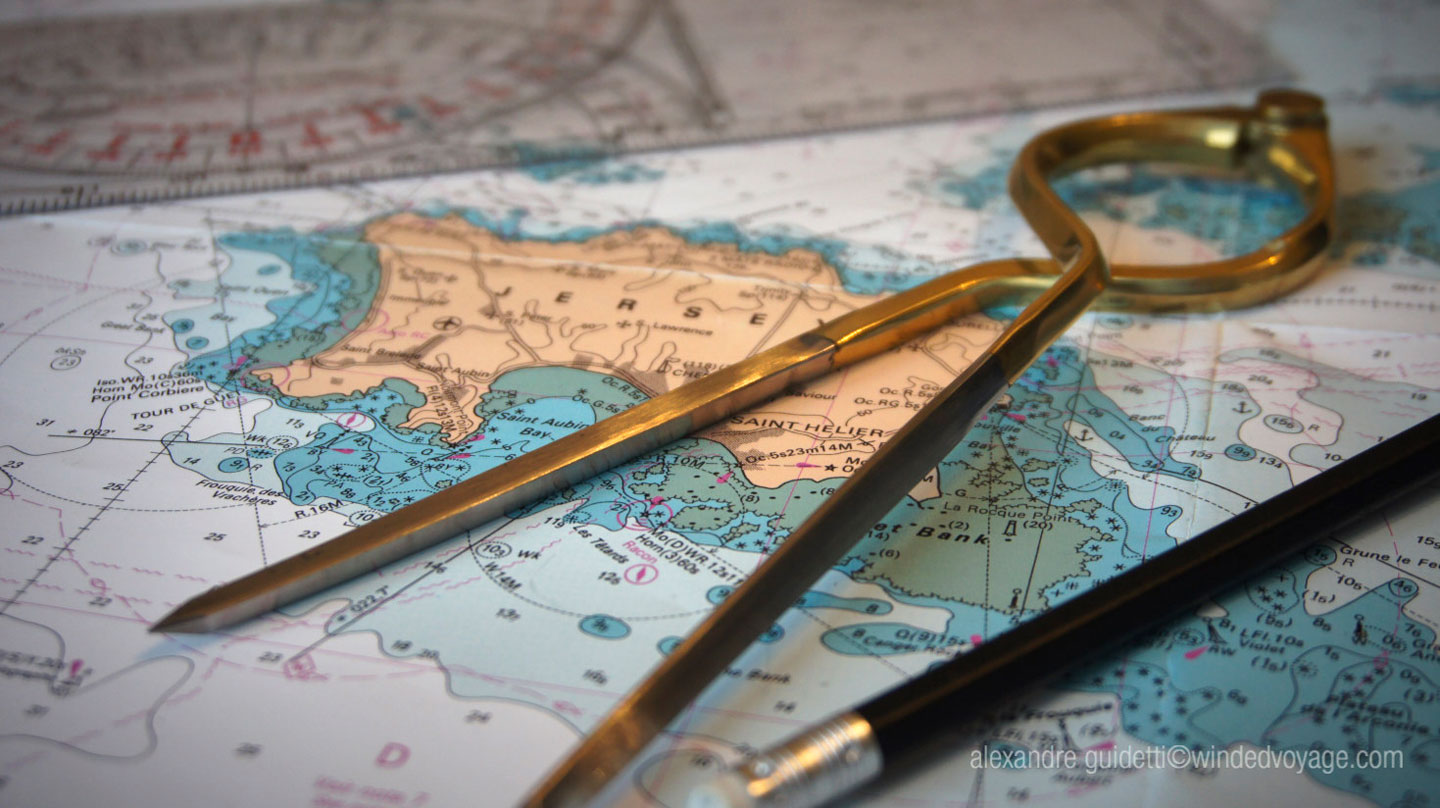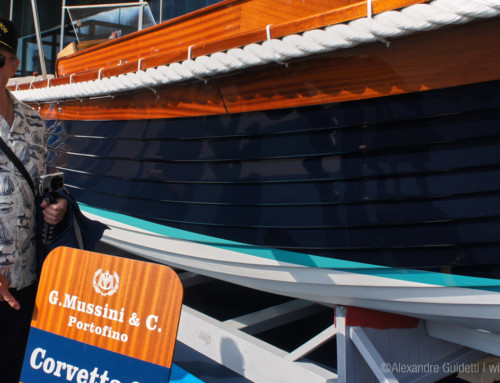The Intellectual Sailor
It seems only the Swiss can intellectualize sailing. In their defense, it’s for safety’s sake, but my first night of school took a bit of wind out of my sails as the class focused on mathematical equations. Can you imagine trying to understand, on paper, the physics of bike riding in numeric calculations? It was as if we were required to attend a physics course to learn the maths of gravitational pull in relation to the velocity of motion. A skill generally taught by a parent or friend who gave you that first push and brushed off your bloody knees. Even if you get a full understanding of the physics, you still have to have to apply the knowledge with a scientific experiment. Get in the damn saddle and ride! You’ll quickly figure out that the brakes are the best option to a desperate lunging rendez-vous with the bruising ground below.
With many sports I managed to get my head around, it was always by trial and error. I learned the basics of sailing from two of my uncles and my cousin Christophe, a world class Laser champ in his teens. And it was at the age of 12 that I set off on my own on a Laser after a basic fifteen minute sailing course at Club Med. I’ve been hooked ever since, like a kid on a bicycle, whenever I could get my hands on a boat, I’d climb on and sail. That’s my knowledge of sailing. I know how to sail like I know how to ride a bike, instinctively. But as of now I know what a Nautical Mile represents, the principles of positioning at the intersection of latitude and longitude in degrees and minutes. Neptune help me, because there is more calculating to come in terms of currents, tides and charting. To become the intellectual sailor and pass my test to get the Swiss Maritime License is just another part of my Winded Voyage.






Alex, as you’ve written in the previous post — get free! Do you really need a Swiss license to “untie the lines” in the Med? There’re 5 days on-boat classes in Goceck (Turkey), that give you a day-sailing skipper license with minimum nonsense of math, next you need the GMDSS to operate radio transmitter in international waters.
For Med its’ enough, then — you can take a RYA or IYT courses on the feeling of the “need” basis and on demand from insurance company.
Hi Nick. Indeed, it’s a bit hypocritical to “get free” and have to go through all sorts of admin bullcrap just to get a license and sail. Here’s the problem. I’m Swiss. I looked into alternative flags to sail under, but having a Swiss flag does ave it’s advantages. Apart from the pain-in-the-arse administrative, I will fly a flag that is a). Neutral b). Peaceful c). A non-invasive country d). Most will see the Swiss flag as a the Red Cross. In other words, I can sail to Cuba, no prob. Muslim countries, no issue. Post-colonial states, we Swiss never colonized anyone. In short, the pain will be worth the gain:-) And I’ll actually learn a few valuable lessons.
BTW Nick, thanks for your suggestions. I very much appreciate, and have considered alternatives to Swiss anal perfection. But I must do what a sailor must do, (A Swiss one in my case)
Hi Nick, I wish I could do the licence more simply, but my situation requires me to do it as a Swiss citizen. And like precision watch making, it’s complicated. I’m listing the experience as part of my Winded Voyage:-)
I’m sure you’ll pass it. Just take time and enjoy, theory has its nice sides as well.
Personally, I believe that knowing and practicing “go-slow-self-reliable” with minimum technology is much more fun, than playing around with Navionics on the iPAD.
It’s a bit intimidating at first, but once the logic sets in it becomes understandable. The language is a bit annoying, even though I’m bi-lingual. Just did several sessions on tides in the English channel. They look impressive and I’m glad to learn about them, especially in that region where they are very dramatic. All in all, it’s great tp learn the theory, but the practice will make it real.
Hi Alex, about getting a fist boat at 40ft. Received wisdom is to get a first boat <10m. Id like get a boat and live aboard, im going to do the basic qualifications, however 10m is too small! Could you say how you have found the 40ft boat especially regards single handed berthing etc. Did your previous experience in Switzerland help you where it counts regards the 40ft boat? (could you have handled it without your prior small boat experience)
I was also guided to a bigger boat. 40ft is the perfect size for me. I can stand up inside without hating my head. And I can sail him single handedly. I was nervous and intimidated in ports at first, but with practice and confidence gained, I can get around very well in marinas. The boat is big enough to be steady, yet small enough to manoeuvre without bow thrusters. My prior experience with a small boat helped, but it’s like driving a car to driving a big pickup truck. Just takes some time to get used to it. Best to you Nicholas!